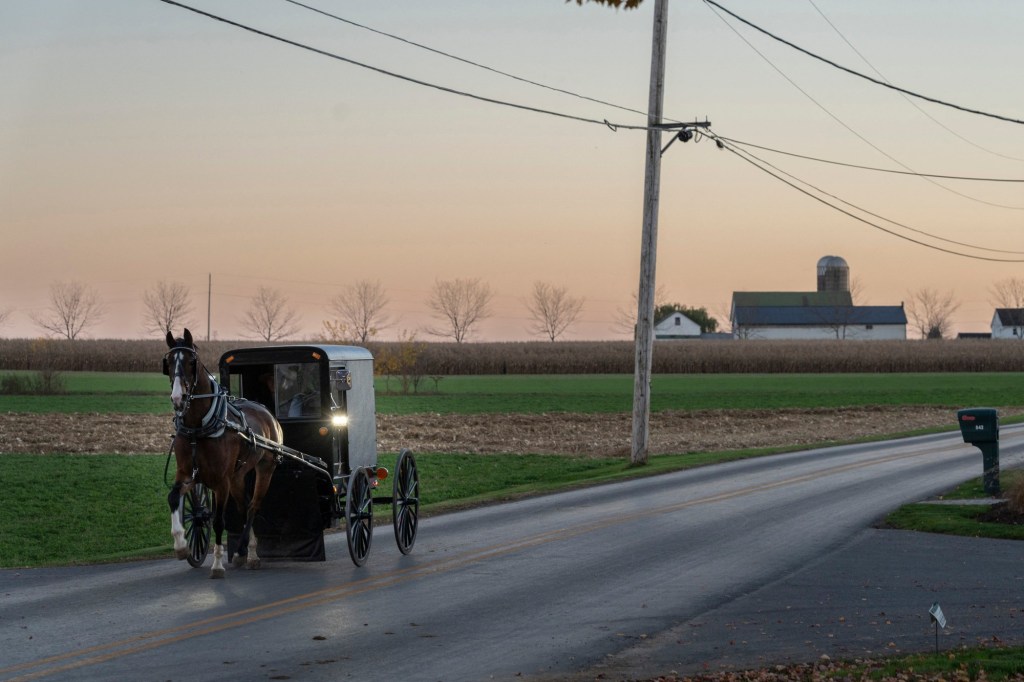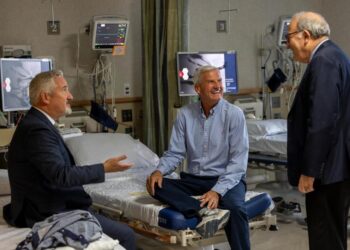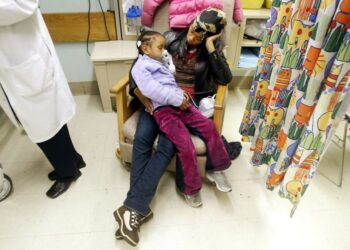Nan’s Donuts, located in the central Pennsylvania region of Sugar Valley, is only open Wednesdays and Saturdays. That’s why Don Lynch parks Evangelical Community Hospital’s mobile health clinic in the parking lot of the adjoining Amish grocery on the first Wednesday of each month.
Nan’s Amish bakery offers more than 40 types of donuts, including rotating seasonal flavors — like pumpkin streusel — that tempt the sweet tooth of valley residents from well beyond the town borders of Loganton.
Loganton is home to only 463 people. But Nan’s has around 1,600 followers on Facebook.
Lynch, a paramedic and the hospital’s mobile coordinator, piggybacks on Nan’s foot traffic to draw in rural residents for free preventive blood screenings. The hospital itself is located 30 miles east — a tough trip for the elderly and those traveling by horse and buggy.
The use of mobile health clinics exploded during the COVID-19 pandemic, driven by the need to reach patients in outdoor, decentralized locations and also by the trillions of dollars in federal aid that Congress poured into the economy. In rural areas, mobile clinics often replace the dwindling preventive care network that helps keep patients healthy and out of the emergency room.
Next year, a 2022 law will also authorize the further expansion of mobile clinics. But Congress would have to fund it first.
Pennsylvania is home to the country’s largest Amish population, with nearly 90,000 living in 61 settlements across the state, according to Elizabethtown College’s Young Center for Anabaptist and Pietist Studies.
Evangelical’s established community presence is important to reach the area’s sizable Amish community, which generally avoids using modern technology and can be skeptical of modern medicine. Amish people also often lack health insurance, which can make health care too pricey to afford.
The hospital set up its mobile clinic before the pandemic….
Read the full article here







